Webinar recording. The Path to Patient Safety 1/3
Webinar series
The Path to Patient Safety. Addressing Industry Concerns and Solutions for Primary Packaging Component Selection.
Webinar | April 1, 2020
Datwyler to host the first of three webcasts in their series focused on patient safety on April 7. Be sure to register for our webinar series.
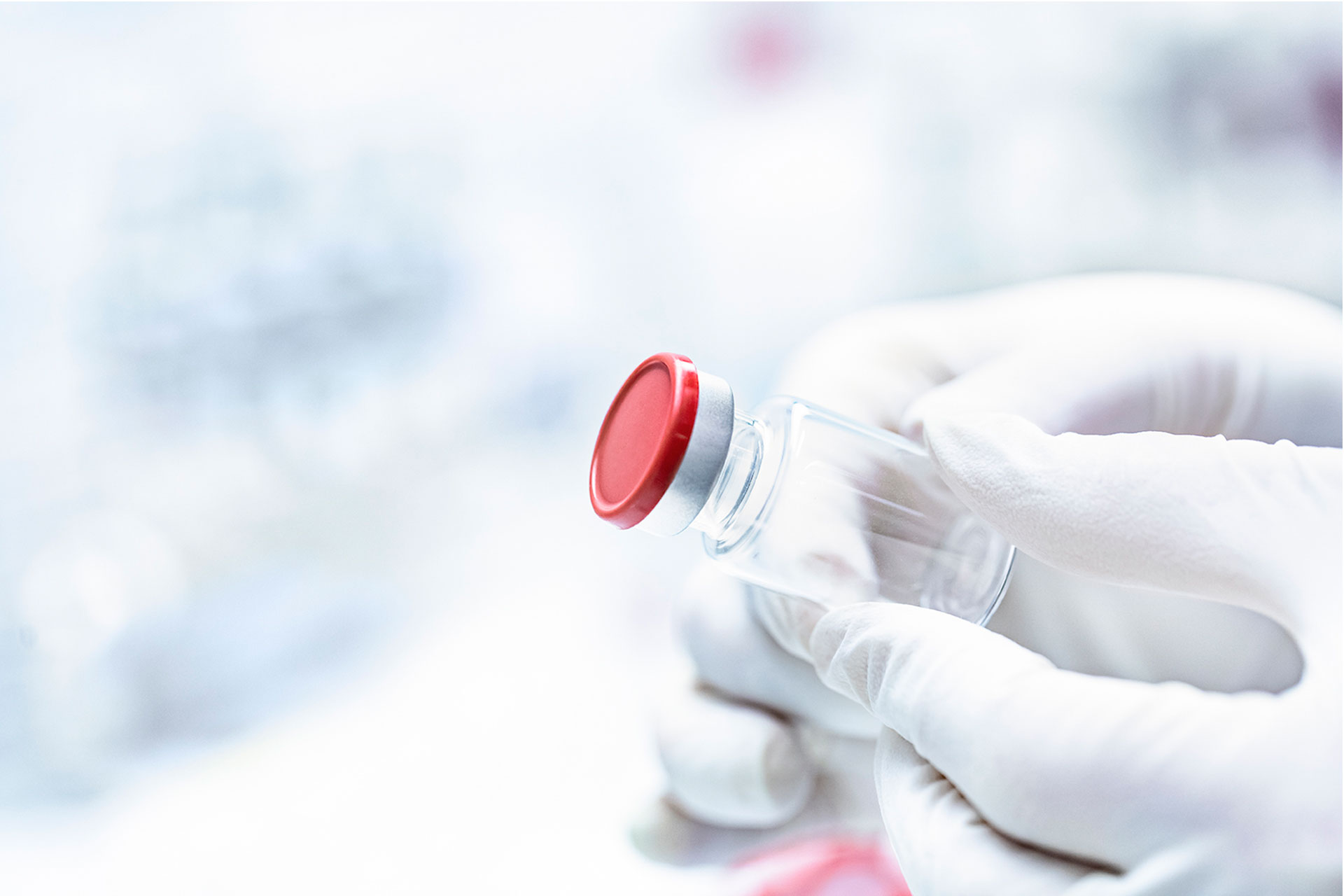
The Path to Patient Safety. Webinar series 1/3

The Path to Patient Safety. Webinar series 2/3
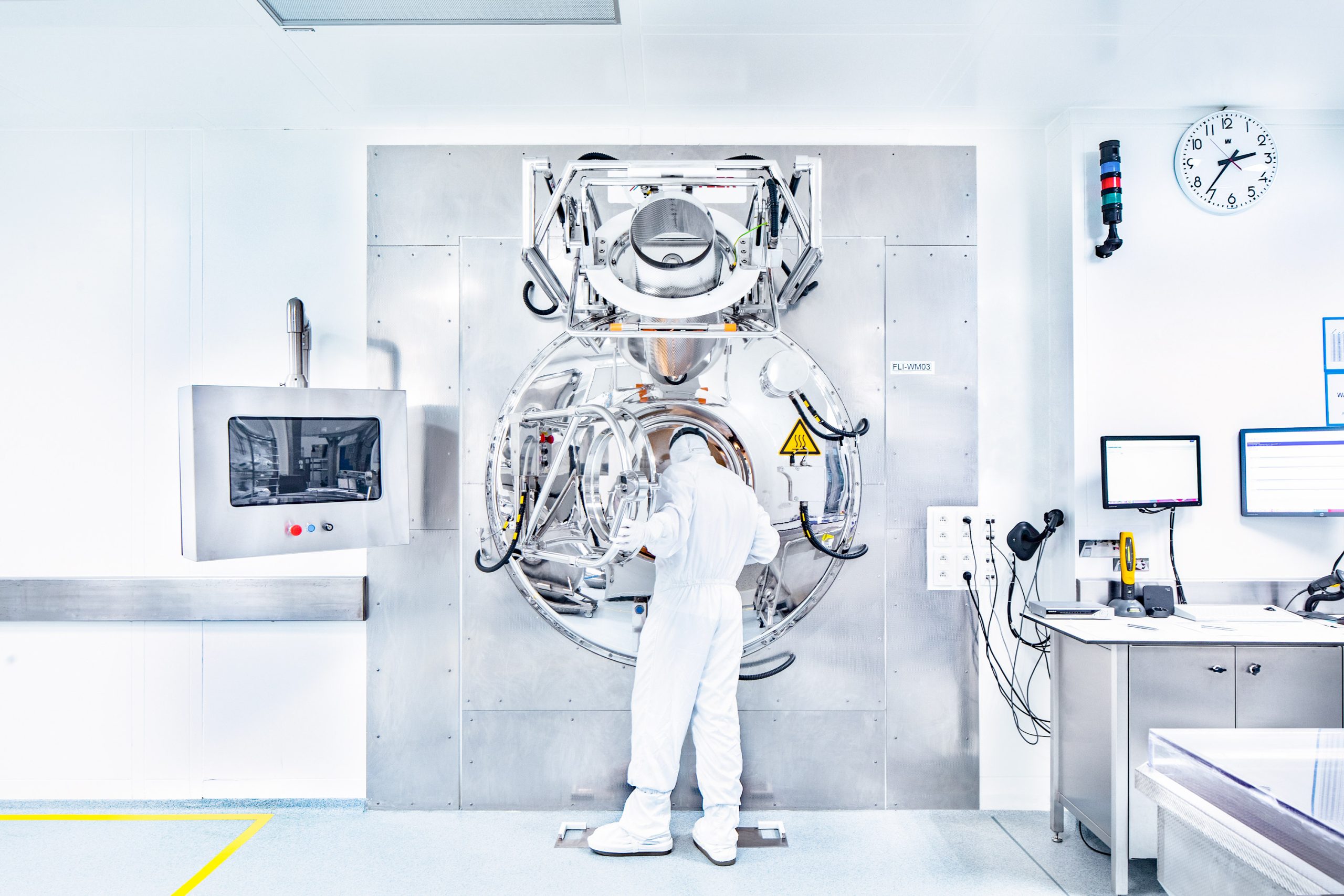
The Path to Patient Safety. Webinar series 3/3
Webinar 1/3
Striving for Zero Defects. Use of Quality-by-Design Principles for Manufacturing Parenteral Packaging Components to Mitigate Risks of Drug Product Contamination.
Visible particles are a concern for the pharmaceutical industry. In the last few years, a quarter of all sterile injectable drug recalls were linked to particulate found in finished drugs. This poses a significant challenge to address quality requirements and to comply with regulatory authorities in various geo-regions. This webcast will focus on innovations in the manufacturing of parenteral packaging components to address the demanding needs for packaging sensitive drugs, such as biologics.
Topics of discussion will include
– Common concerns in the pharmaceutical industry surrounding parenteral packaging
– A quality-by-design approach to manufacturing components to mitigate industry concerns that relate to particulates and silicone contamination
– Analytical tools utilized to ensure packaging integrity and product quality
– Advancements in products and processes to achieve best-in-class specifications, with a focus on ‘zero-defects’
Key learning objectives
– Understand the risks that face the pharmaceutical industry today from a drug packaging perspective, and discuss strategies to mitigate these risks
– Introduce a QbD approach to product manufacturing and product design for pharmaceutical components with a focus on particulate reduction
– Review solutions for manufacturing high-quality packaging components to meet the needs of biologics and sensitive molecules
Who should attend
– Formulation scientists and packaging engineers
– Device development engineers and managers
– Technical functions surrounding drug delivery systems
– Extractable and leachable experts
– Quality/regulatory personnel in parenteral drug delivery
– Procurement professionals

Rahul Thakar, PhD
Technical Key Account Manager
Datwyler
Rahul Thakar is a technical key account manager with Datwyler and has more than 10 years of product development experience in pharmaceutical and chemical sciences. In his current role, Rahul consults with pharmaceutical and medical device companies on parenteral packaging solutions to develop safe and efficacious drug-delivery systems. He holds global responsibility for several key clients, where he is responsible for technical projects from the ideation to the commercialization stage. Within Datwyler, he is also leading strategic collaborations with external partners for product portfolio expansion and product innovation.
Rahul was awarded his doctorate degree in material science and analytical chemistry from Indiana University, Bloomington where his graduate research was focused on design and microfabrication of bioanalytical devices for electroanalytical measurements.

Elke Geuzens, PhD
Technical Key Account Manager
Datwyler
Elke Geuzens received her doctorate degree in chemistry from Hasselt University in Belgium. After receiving her degree, she acquired several years of experience working in the chemical industry. Elke joined Datwyler in 2010 as a Product Support Manager, and has continued to hold technical roles at Datwyler, gaining more than 10 years of experience as a representative to customers of Datwyler’s container closure solutions.
Currently, Elke is in the role of Technical Key Account Manager where she acts as a main point of contact for technical inquiries, project management, and customer support. In her role as Technical Key Account Manager, Elke works directly with pharmaceutical, biotech, and medical device companies, focusing on providing technical expertise on parenteral packaging for injectable drug products.
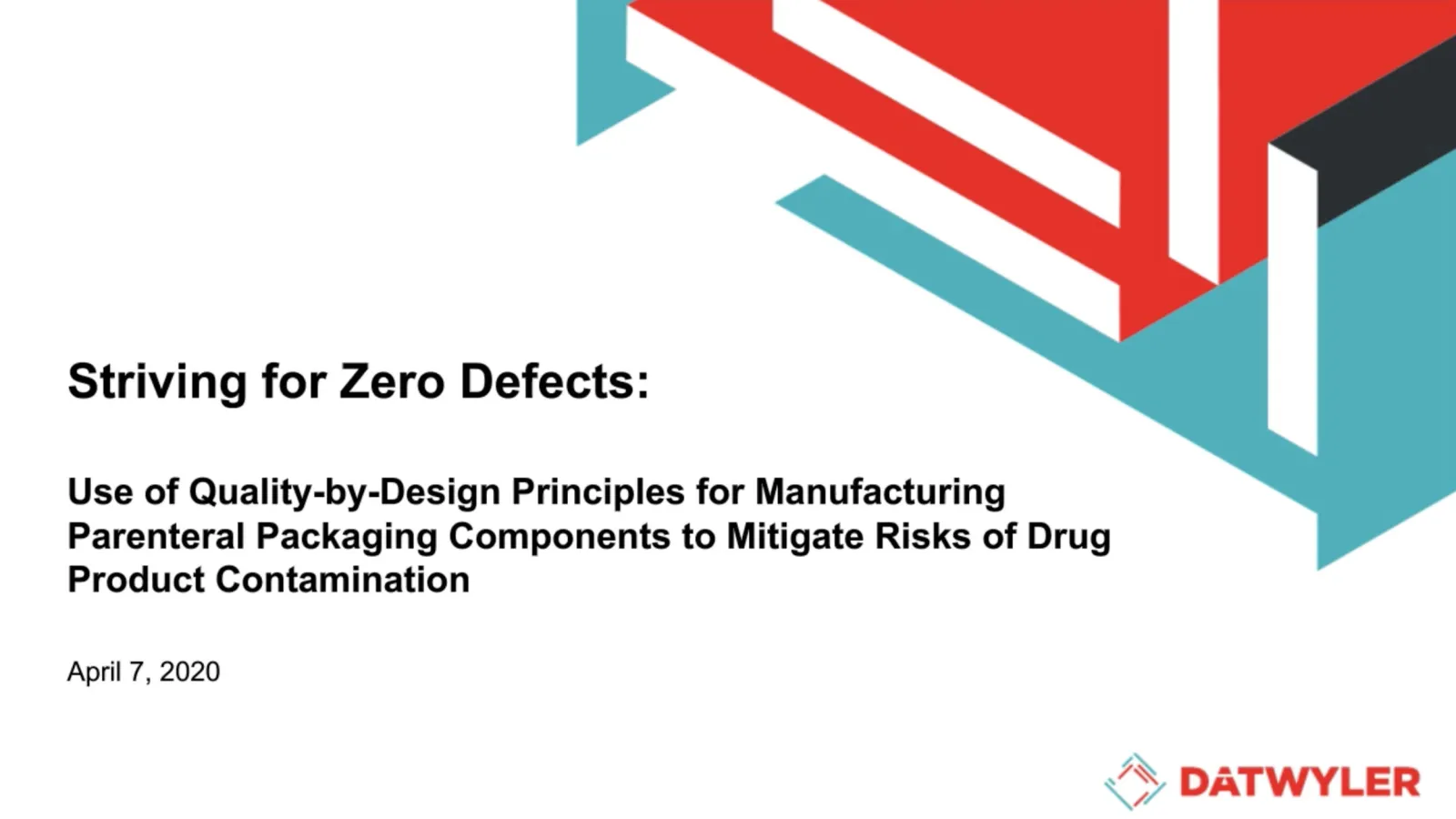
Webinar 2/3
Best Practices for Meeting and Exceeding Regulatory Standards in Primary Packaging.
In today’s regulatory environment, stricter requirements are being placed on primary packaging components for parenteral drug products. Packaging suppliers are making efforts to meet these requirements in order to ensure their products are accepted by both regulatory bodies and pharmaceutical companies. This webcast will analyze United States Pharmacopeia (USP) General Chapters <381> and <382> and discuss ways to not only meet the regulatory requirements currently in place, but to exceed them with an effort to create a future-proof regulatory pathway.
Topics of discussion will include
– A review of USP General Chapter <381>, “Elastomeric Components in Injectable Pharmaceutical Product Packaging/Delivery Systems”
– An introduction to USP General Chapter<382>, “Elastomeric Component Functional Suitability in Parenteral Packaging/Delivery Systems”
– A discussion of the best practices for meeting current industry requirements currently for elastomeric primary packaging
– Using industry trends, a look to the future of regulatory requirements for elastomeric components, as well as the presentation of a future-proof strategy to ensure standards are met over time
Key learning objectives
– Understand the risks that face the pharmaceutical industry today regarding stricter and evolving regulatory requirements
– Introduce the requirements and understand the implications of USP <381> and <382> for elastomeric components
– Review future trends and how to prepare for regulatory changes over time
Who should attend
– Quality/regulatory personnel in parenteral drug delivery
– Formulation scientists and packaging engineers
– Device development engineers and managers
– Technical functions surrounding drug delivery systems
– Extractable and leachable experts
– Procurement professionals

Renaud Janssen
Vice President Technical Services
Datwyler
Renaud Janssen graduated as a chemical engineer from Leuven University, Belgium. After working for 4 years for Janssen Pharmaceutica in Belgium, Renaud joined Datwyler Pharma Packaging in 1988. Since then he has been holding positions in R&D, Technical Customer Support, Quality, Scientific Affairs and Regulatory Affairs and Chemical Compliance. Currently, Renaud is Vice President, Technical Services for Datwyler Pharma Packaging.
Renaud frequently presents at international conferences on subjects related to elastomeric and aluminum/plastic closures for pharmaceutical applications. Renaud also takes part in various standardization and pharmacopeial committees of ISO, Pharm. Eur. and USP. He is chairing the USP Expert Committee Packaging and Distribution in the 2020-2025 USP cycle. He also is an active member in industry organizations.
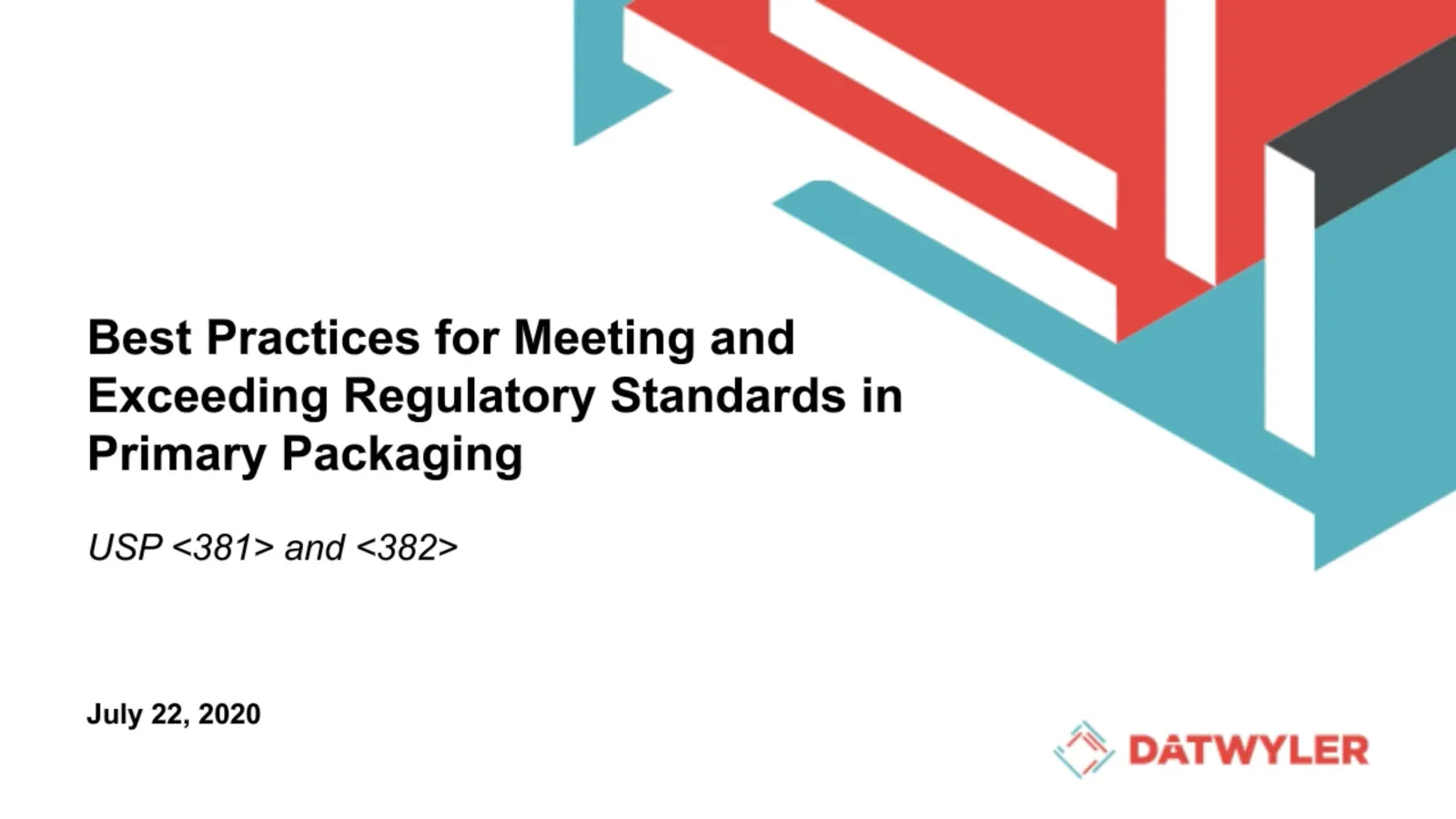
Webinar recording. The Path to Patient Safety 2/3
Webinar 3/3
Using Quality Principles to Analyze and Quantify Particulate Matter in Parenteral Packaging.
Parenteral drug developers are faced with multiple challenges when it comes to packaging drug products; one of the most critical is protecting the drug product from particulate matter. Particulates pose a risk to the overall quality and effectiveness of the drug, causing contaminated products to be discarded during manufacturing, or, in a worst-case scenario, during a recall event. To prevent these costly scenarios, it is imperative that measures are put into place to analyze, quantify, and mitigate particulate matter in drug product packaging.
Topics of discussion will include
– Common concerns in the industry, specifically regarding particulate matter in parenteral packaging
– Quality principles and how they are applied to the analysis and quantification of particulate matter
– How to implement processes in the design, manufacturing, and testing of parenteral packaging to mitigate the risk of particulate exposure
Key learning objectives
– Understand the risks that face the pharmaceutical industry today regarding particulate matter
– Introduce the quality principles used to analyze and quantify particulate matter
– Review key findings and best practices for identifying and reducing particulate matter in parenteral packaging
Who should attend
– Quality/regulatory personnel in parenteral drug delivery
– Formulation scientists and packaging engineers
– Device development engineers and managers
– Technical functions surrounding drug delivery systems
– Extractable and leachable experts
– Procurement professionals

Gert Gregoire
Global Process Engineering Manager
Datwyler
After working for Philips Lighting and Terumo Europe for many years, Gert Gregoire joined Datwyler Pharma Packaging in 2007. He was involved with the introduction of the FirstLine concept in Belgium and as production manager for FirstLine, he led the first new plant using Datwyler’s highest global manufacturing standard.
In 2014, Gert became head of operations support and was responsible for process engineering and validation, toolshop and pilot plant within the Belgium facility. Currently, he is global process engineering manager reporting to the vice-president technical services within Datwyler Pharma Packaging.
Gert graduated as an electromechanical engineer at Group T (Engineering campus of Leuven University, Belgium) and holds also a Master’s degree in management from Hasselt University.
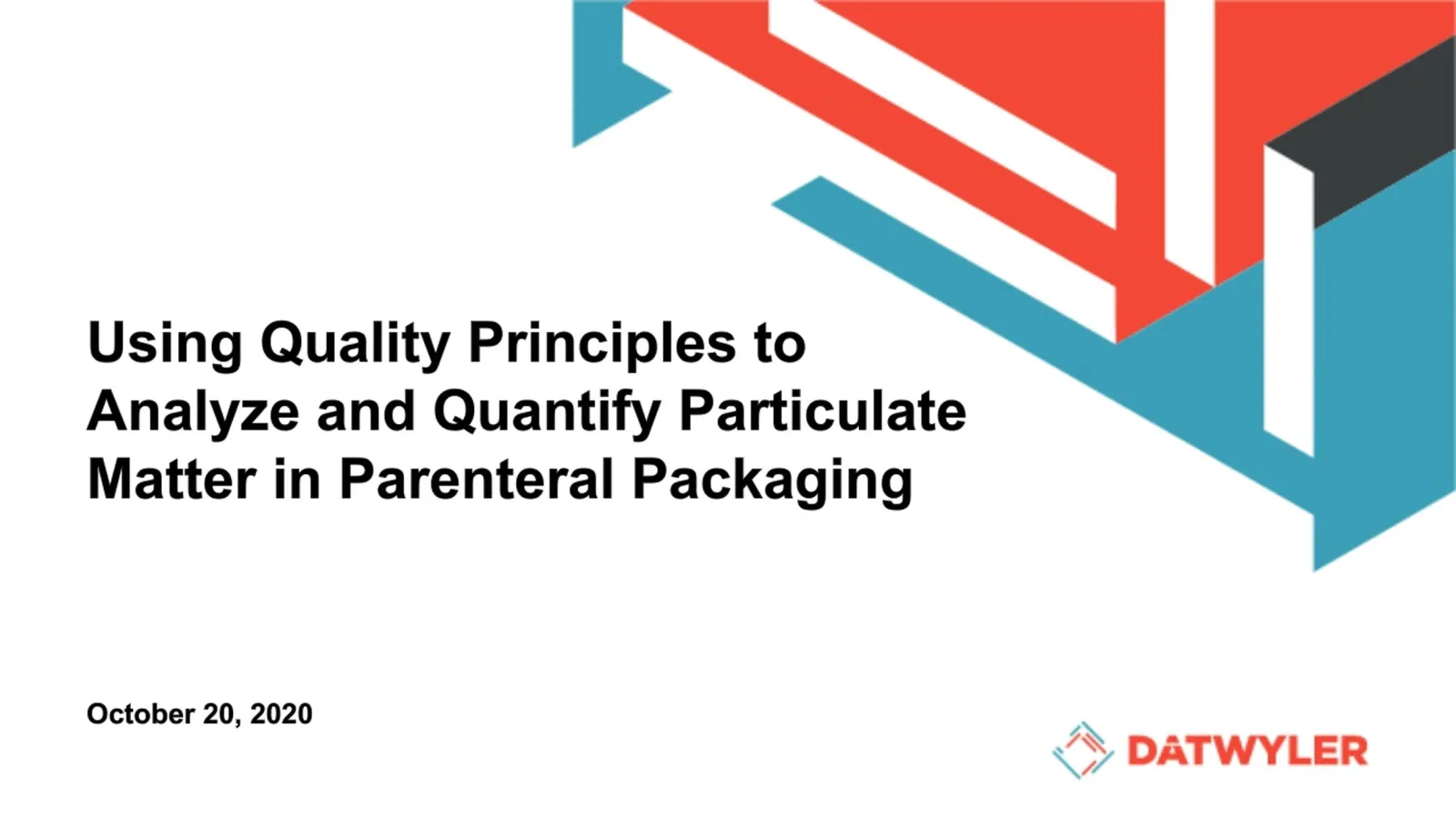
Webinar recording. The Path to Patient Safety 3/3